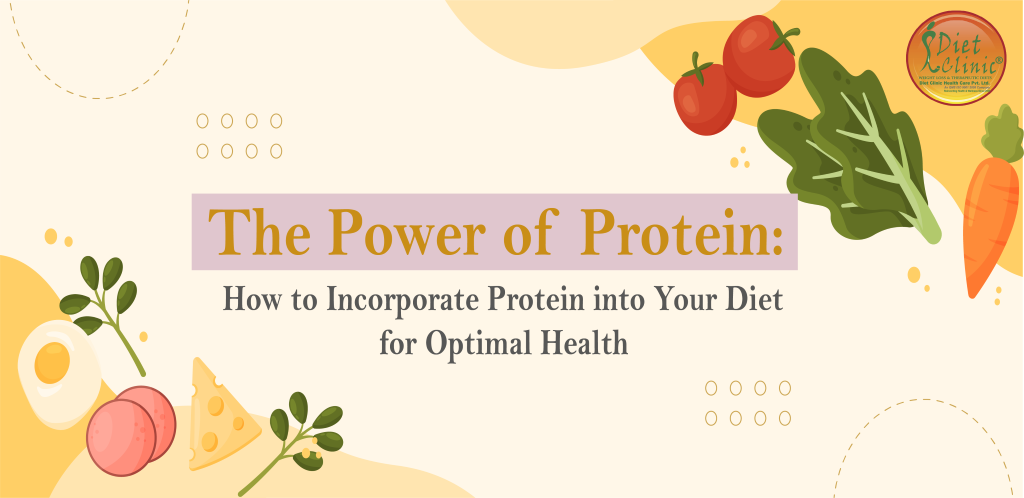
Dietician Sheela Seharawat
Protein is an essential nutrient that plays many critical roles in the body. It is a building block of muscles, bones, cartilage, skin, and blood, and it is also essential for making enzymes, hormones, and other important molecules. Additionally, protein is necessary for repairing tissues and aiding in the growth and maintenance of the body. In this blog, we will discuss the power of protein and how to incorporate it into your diet for optimal health.
Why is Protein Important?
Protein is a macronutrient that is essential for overall health and wellness. It helps to build, repair and maintain tissues in the body, and it also supports the immune system and aids in the production of enzymes and hormones. Additionally, protein plays a critical role in weight management as it helps to promote satiety and reduce hunger, which can aid in weight loss.
How Much Protein Do You Need?
The amount of protein that an individual needs varies depending on their age, sex, weight, and physical activity level. The recommended daily intake for protein is 0.8 grams per kilogram of body weight. However, athletes and individuals who engage in regular physical activity may need more protein to support muscle growth and repair. It's essential to speak to a registered dietitian to determine the optimal protein intake for your individual needs.
Sources of Protein
There are many sources of protein, including animal-based sources such as meat, poultry, fish, eggs, and dairy products, as well as plant-based sources such as beans, legumes, nuts, and seeds. It's essential to include a variety of protein sources in your diet to ensure that you are getting all the essential amino acids necessary for optimal health.
Incorporating Protein into Your Diet
Incorporating protein into your diet is easy, and there are many delicious and nutritious options to choose from. Here are some tips to help you incorporate protein into your meals:
1. Start Your Day with Protein
Starting your day with a protein-rich breakfast can help to keep you feeling full and satisfied throughout the morning. Some good options include eggs, Greek yogurt, or a protein smoothie with fruits and vegetables.
2. Add Protein to Your Salads
Adding protein to your salads is an easy way to boost the nutrient content of your meal. Try adding grilled chicken, salmon, tofu, or chickpeas to your salad for a filling and satisfying meal.
3. Snack on Protein
Snacking on protein can help to keep you feeling full between meals. Some good options include a hard-boiled egg, hummus with vegetables, or a handful of almonds.
4. Swap Carbs for Protein
Replacing some of the carbohydrates in your meals with protein can help to boost satiety and aid in weight loss. For example, instead of pasta, try spaghetti squash with turkey meatballs or swap out white rice for quinoa or brown rice.
5. Meal Prep with Protein
Meal prepping with protein can help to ensure that you have healthy and nutritious meals ready to go throughout the week. Some good options include grilled chicken or fish, roasted vegetables with chickpeas, or lentil soup.
In conclusion, protein is an essential nutrient that plays many critical roles in the body. By incorporating protein into your diet, you can improve your overall health and wellness. Remember to choose a variety of protein sources and speak to a registered dietitian to determine the optimal protein intake for your individual needs.










